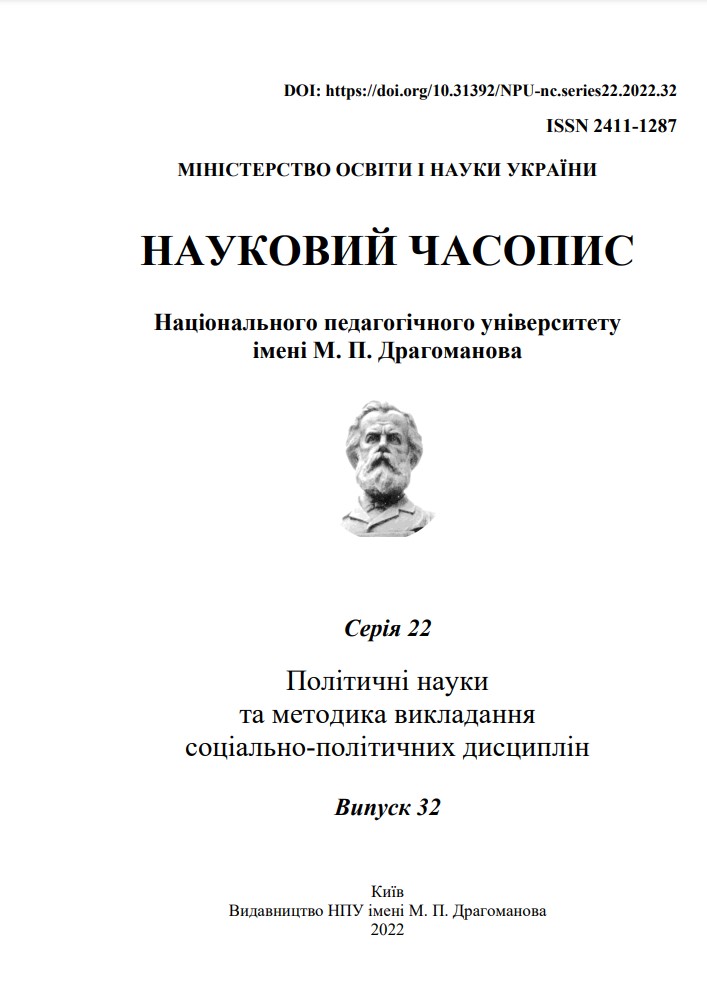DEMOCRATIC PEACE THEORY FOR RUSSIA-UKRAINE WAR ANALYSIS
DOI:
https://doi.org/10.31392/NPU-nc.series22.2022.32.08Keywords:
democracy, peace, theory, Ukraine, civil society, nations in transit, international organizationsAbstract
The question remains pertinent if the concept of democratic peace is viable for political agenda and international relations system of the 21st c. One can witness both successful and questionable examples of democratic peace theory implementation, yet it is apparent that transition to democracy is not always an unproblematic and consistent process. The goal of the article is to analyze the viability of the democratic peace theory for Russia-Ukraine war analysis. The selected method is historical analysis of the democratic peace theory advancement, Ukraine’s and Russia’s political development, economic cooperation and participation in international organizations. Besides, secondary data analysis was employed for the research purposes. It can be concluded that democratic peace theory hardly appears to be a viable framework for Russia-Ukraine war analysis.
As to the first tenet of the democratic peace theory – republican institutions – both Ukraine and Russia are republics, and strictly formally fulfill this criterion, yet Russia’s being a democracy de facto has proven to be erroneous. Regarding the second tenet of the democratic peace theory – economic interdependence (universal community) – prior to the start of the war in 2014 one could witness a considerable, yet declining level of economic cooperation between Ukraine and Russia, complicated by asymmetrical relationship between the two states. Even though, in accordance with the theory tenet, considerable economic cooperation should have prevented Russian aggression against Ukraine as a trading partner, the initiated war can, apparently, be explained by political and security perceptions which outweighed purely economic factors. Regarding the third tenet of the democratic peace theory, one can witness a certain level of cooperation between Ukraine and Russia within international organizations, yet fundamental ideological differences between the two countries are vividly reflected in this sector. It can be concluded that the democratic peace theory is hardly applicable for Russia-Ukraine war analysis, and the reasons of the ongoing war can be explained by current Ukraine’s standing as democracy in transit and Russia’s becoming a consolidated authoritarian regime. Thereby Ukraine is now spearheading a fight for democracy worldwide, while democracy development in Russia is further deteriorating.

